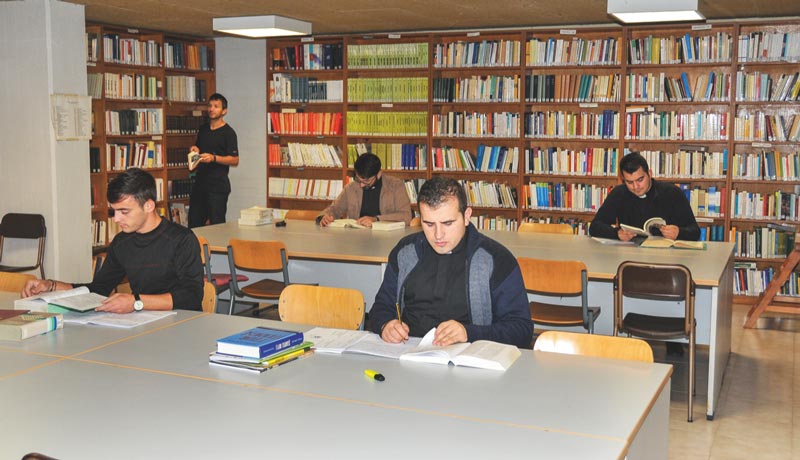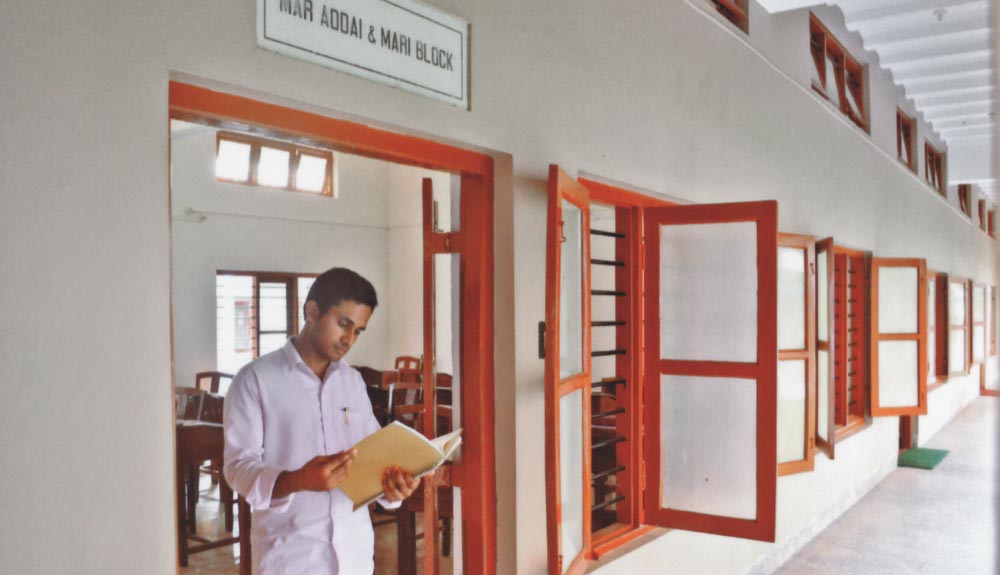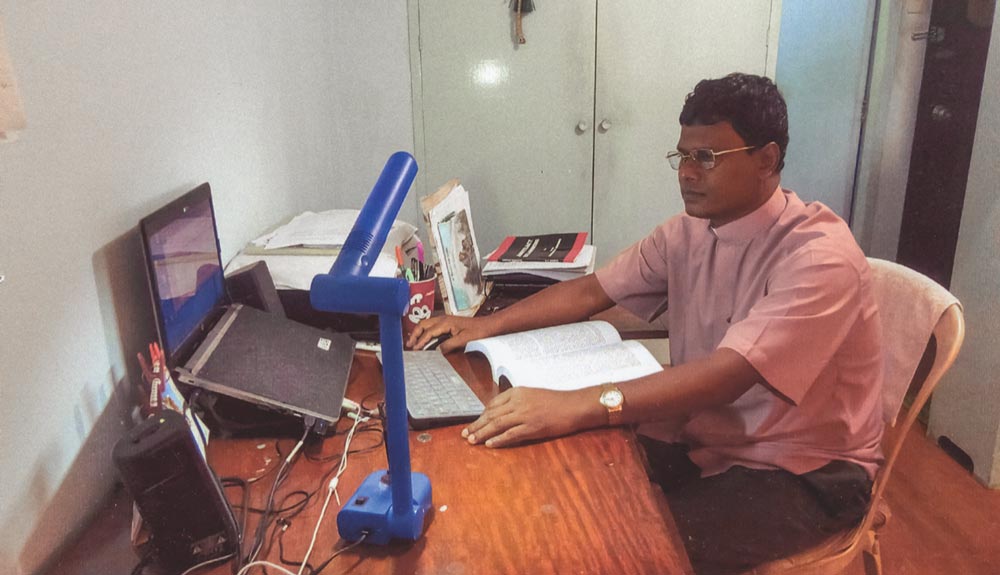0 The theological training and qualification of seminarians has always been an important focus of our aid. After all, future priests will ultimately be spiritual pillars and safeguard sacramental life. Therefore, our educational assistance mainly flows into countries where the suitable and continuous training of future priests is endangered or is not adequately ensured due to poverty, war or persecution.
In 2018, we supported a total of 11,817 seminarians. Thanks to the generosity of our benefactors, we have been able to fund every tenth seminarian worldwide.

Also the continuing education of God’s servants is an important concern to us. In the reporting year, we sponsored the continuing education of 4,370 priests who themselves will train seminarians and thus maintain the qualitative level of priestly formation in their home countries over the long term.
In addition, we were able to financially support courses and retreats, in which a total of 4,397 priests could find strength and required knowledge competence for a daily renewal of their vocation.
» Scholarships are the seed which we hope will yield ripe fruit for the Church.«
It is always a great pleasure when bishops report to us that scholarship holders have successfully completed their studies, full of pride and gratitude. In 2018, we continued this commitment.
In this way, we were able to award 406 scholarships to priests who, for example, are earning a doctorate or completing an additional degree course to become lecturers in priestly formation or in other fields that require a higher academic degree or additional study. The scholarship holders received their training at universities or institutions in Italy, Belgium, France, Germany, Austria, Spain, Poland and Canada.

In terms of continental distribution, 30% of our scholarship holders came from Asia, 42% from Africa, 20% from Latin America and 8% from Eastern Europe. Nevertheless, we are continually faced with challenges in selecting and deciding who will receive scholarships.
» Awarding a scholarship is special, because in contrast to all other types of projects, the project partner, the student, is one hundred percent responsible for whether the project bears fruit one hundredfold, fiftyfold or not at all.«
On the one hand, we would like to do justice to the special requirements and needs of the diocese, the order or the congregation that applies for a scholar- ship from us for their candidate. Often, it is important to close gaps in the teaching staff at the seminary or to train a new novice mistress for a growing community of nuns.

On the other hand, there is also the question of the personal, intellectual or spiritual maturity of priests or sisters who are to be released from their function to undergo further theological or philosophical training. In the end, the scholarship holders will be living away from their normal environment for a long time in a country whose language they have often only recently learned. In addition, there are frequent issues such as health problems, homesickness or obstacles to obtaining a visa.
© ACN Aid to the Church in Need
Necessary cookies are absolutely essential for the website to function properly. This category only includes cookies that ensures basic functionalities and security features of the website. These cookies do not store any personal information.
Any cookies that may not be particularly necessary for the website to function and is used specifically to collect user personal data via analytics, ads, other embedded contents are termed as non-necessary cookies. It is mandatory to procure user consent prior to running these cookies on your website.